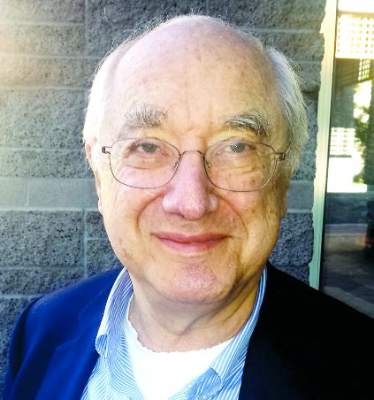EXPERT ANALYSIS AT THE AMERICAN COLLEGE OF PSYCHIATRISTS ANNUAL MEETING
SCOTTSDALE, ARIZ. (FRONTLINE MEDICAL NEWS) – Most psychiatrists are familiar with many of the basic tenets of psychoanalysis, but they probably aren’t relying on its therapeutic powers in practice as much as they are pharmacotherapy, according to an expert.
“There’s a great deal of discussion about whether psychoanalysis has an adequate evidence base. That’s a popular concept. It’s not so much about whether practitioners want to use it, but whether or not they can defend using it in their dialogs with insurance companies, government agencies, and other sources of support,” Robert Michels, MD , a Walsh McDermott University Professor of Medicine, and professor of psychiatry, at Cornell University, New York, said at the annual meeting of the American College of Psychiatrists. “My summary is that it has less adequate data supporting it [than pharmacologic interventions]. … There is, however, convincing evidence that all of these treatments, ranging from cognitive-behavioral therapy to [dialectical behavior therapy], to dynamic psychoanalysis, to mentalization-based treatment, do have an effect.”
For much of the 20th century, psychoanalysis was the leading outpatient psychiatric therapy. Beginning in the late 1980s, its star began to fade with the rise of safer psychotropics, the outcomes of which are easier to quantify. It also takes less time to see results with drug therapy in the clinical setting, compared with the various forms of psychotherapies – some of which require three or more visits weekly.
“The SSRI probably did more to change psychotherapy than any other evolutionary change in the theory of psychotherapy,” Dr. Michels said. “In the beginning, [pharmacologic treatments] were not terribly useful to the patients of psychoanalysis, because they were too toxic or too psychologically disturbing to use in people without major psychiatric problems. Now, [there is] intense competition from biologic treatments.”
Whereas the goal of pharmacotherapy is cure, the point of psychoanalysis is to derive meaning from neurosis, and ultimately, from life. A sea change in thought about how psychoanalysis should be conducted was well underway before the advent of fluoxetine, however. With the death in 1939 of Sigmund Freud, MD , the founder of psychoanalysis, a wave of theories began to wash over the field. Most of those theories do not see memories as the enemy, or detachment from the patient as appropriate, according to Dr. Michels.
And while the form might vary across the different approaches, the function is the same. “The goal is no longer to recover the lost memory of the childhood trauma. More important is the journey in attempting to discover it,” Dr. Michels said.
Freud avoided seeing his patients as having personality disorders, while the next generations of psychotherapists largely embraced and conceptualized diagnoses, going beyond symptoms and instead focusing on the person’s predisposition to symptom formation. Psychotherapy today sees pathology not as something to be cured but as a reaction to problems tied to everyday living. It assumes that a more effective reaction to those problems can be learned.
Rather than shun what were once considered obstacles – resistance, enactment, transference, countertransference, and working through interpretations – the psychotherapist uses those to establish a relationship with the patient; emotions stirred by the therapist become important markers of patterns that have persisted in the person’s life that prevent forming smooth relationships, and vice versa. “In the new model, the therapist is an actively engaged participant whose core skill is to stay fully involved and interconnected while also being able to step back and say, ‘What is happening here?’ ” Dr. Michels said. “Transference and countertransference are essential tools to the therapeutic process. Hopefully, we change the patient’s attitude to his own mental life and toward others around him. We have a much more open, broader, wider way of dealing with patients, and we are much more humble about what we know before the treatment starts.”
In an interview, Dr. Michels said this has been especially helpful in treating people with borderline personality disorder, for whom the neutral face of a therapist can often be a trigger. “You end up being a better player through collaboration. If you carry the argument to its extreme, we’d say it doesn’t make any difference if you discover the flaw.”
Also in the interview, Dr. Michels said that, while many therapists are aware that psychotherapy has evolved and that it is effective, it is still not commonly taught in medical schools beyond a basic level because of the “finite nature of the amount of time to learn what students are required to learn in order to be a skilled psychotherapist, regardless of whether they have the raw talent for it.” Outcomes of pharmacologic therapies are easier to measure, and that is another reason psychotherapy is “troublesome,” he said. Most psychotherapists prefer not having to justify its use to third-party payers.
The tension between the therapist and insurers should not automatically be a deterrent to expanding access to talk therapy according to the meeting’s program chair, Scott T. Aaronson, MD , director of clinical research at the Sheppard Pratt Health System, Baltimore. “I don’t think that psychoanalysis has ever been a great friend of insurance. I think we need to educate insurance companies on what psychotherapy means. Instead, we just sort of allow them to make rules. It’s been a one-way street that needs to change,” Dr. Aaronson said in an interview.
He and Dr. Michels said data collection on patient outcomes would help. Collecting the hospitalization rates, morbidity and mortality, and medical care costs of people who have received psychotherapy may be worthwhile and would be fairly straightforward to do, according to Dr. Aaronson. “I would worry [about factoring in] those who have been getting psychiatric care off the grid skewing statistics, but if your patient population is of a moderate-income group, very few of those people could afford private care.”
Even if clinicians do not include newer psychoanalytic techniques in practice, Dr. Aaronson said, they “should keep up to date on the trends, and be aware that for many patients, modalities such as mentalization have been exquisitely helpful.”
Neither Dr. Michels nor Dr. Aaronson had any relevant disclosures.
On Twitter @whitneymcknight



